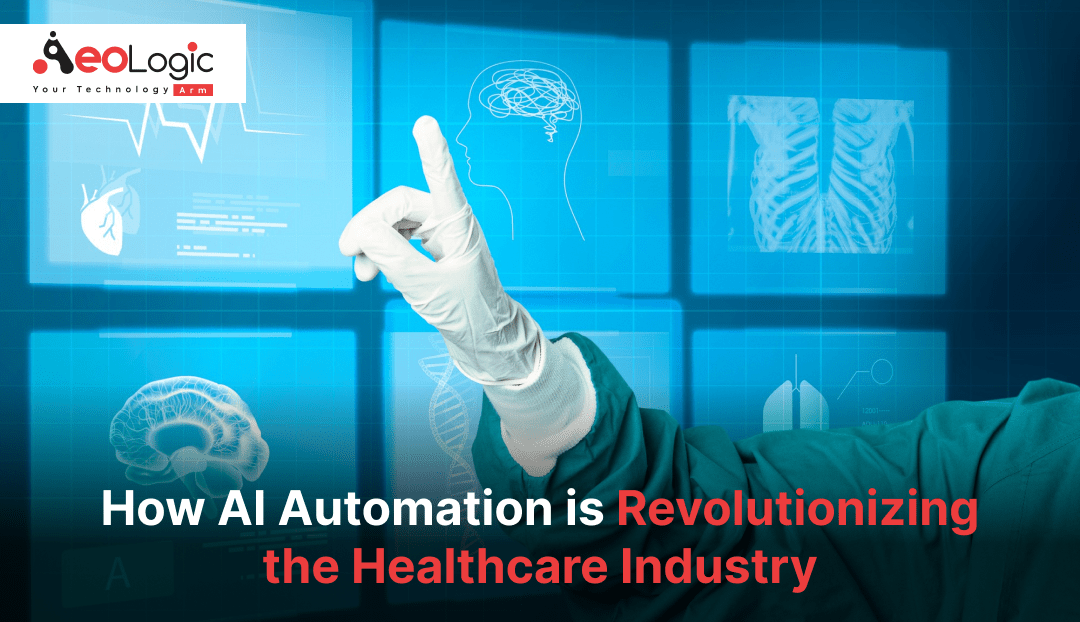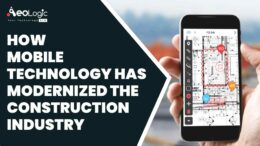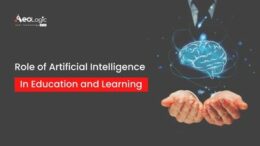The integration of artificial intelligence (AI) into various sectors has been nothing short of transformative, and the healthcare industry is no exception. As we stand on the cusp of a new era in medicine, AI automation in healthcare is reshaping the landscape of healthcare industry, improving patient outcomes, and streamlining operations. This blog explores how AI is revolutionizing the healthcare industry, from enhancing diagnostic accuracy to optimizing administrative processes.
Also read: Transforming Health Care with Artificial Intelligence
Benefits of AI Automation in Healthcare
AI automation in healthcare is revolutionizing the industry by offering several key benefits:
Enhanced Diagnostic Accuracy
AI algorithms excel at analyzing medical images like X-rays and MRIs, often detecting conditions with greater precision than traditional methods. This leads to earlier and more accurate diagnoses, which can significantly improve patient outcomes and enable timely, targeted treatments.
Personalized Treatment Plans
AI enables the development of personalized treatment plans by analyzing individual genetic, medical, and lifestyle data. This tailored approach helps healthcare providers select the most effective therapies, reducing adverse effects and improving the chances of successful treatment.
Streamlined Administrative Tasks
AI automation in healthcare reduces the burden of administrative work by handling tasks such as medical record transcription, insurance claim processing, and patient queries. This enhances efficiency, minimizes errors, and allows healthcare professionals to focus more on patient care.
Predictive Analytics for Preventive Care
AI’s predictive capabilities allow for early intervention by identifying individuals at risk for certain conditions based on historical data. This proactive approach enables timely preventive measures, potentially reducing the incidence of chronic diseases and improving overall health.
AI Automation is Revolutionising Healthcare
Personalized Medicine
AI is driving a paradigm shift towards personalized medicine, tailoring treatments to individual patients based on their unique genetic makeup, lifestyle, and environmental factors. AI algorithms can analyze genetic data to identify specific mutations and predict how patients will respond to various treatments. This approach enables healthcare providers to select the most effective therapies and minimize adverse effects.
For instance, AI tools are used to develop personalized drug regimens for cancer patients, optimizing treatment plans based on genetic profiles and previous treatment responses. This level of customization improves the efficacy of treatments and reduces the trial-and-error approach often associated with traditional medicine.
Streamlining Administrative Processes
Healthcare administration has long been burdened by paperwork and manual processes, but AI automation is bringing significant improvements in this area. Natural language processing (NLP) tools are automating the transcription of medical records and the processing of insurance claims. This reduces the administrative workload for healthcare professionals and minimizes errors that can occur during manual data entry.
AI-driven chatbots and virtual assistants are also revolutionizing patient interactions. These tools can handle appointment scheduling, answer frequently asked questions, and provide preliminary medical advice. By managing routine tasks, AI allows healthcare providers to focus more on direct patient care, improving overall efficiency and patient satisfaction.
Predictive Analytics and Preventive Care
Predictive analytics powered by AI is enabling a proactive approach to healthcare. By analyzing historical patient data, AI algorithms can identify individuals at high risk for certain conditions and suggest preventive measures. For example, AI can predict the likelihood of hospital readmission for chronic disease patients, allowing healthcare providers to implement targeted interventions and reduce readmission rates.
AI automation in healthcare is also used to forecast disease outbreaks and track the spread of infectious diseases. Machine learning models analyze data from various sources, including social media and public health records, to predict and monitor epidemics. This capability is crucial for timely responses to potential health crises and for planning effective public health strategies.
Drug Discovery and Development
The drug discovery process is notoriously complex and time-consuming, but AI is accelerating this critical phase of healthcare innovation. AI algorithms can analyze vast datasets to identify potential drug candidates, predict their effectiveness, and assess their safety profiles. By simulating how different compounds interact with biological systems, AI can streamline the discovery of new drugs and reduce the time it takes to bring them to market.
In recent years, AI has played a role in developing treatments for complex diseases, such as COVID-19. During the pandemic, AI models helped identify potential antiviral compounds and optimize vaccine formulations, showcasing the technology’s potential to address global health challenges.
Enhancing Patient Engagement
AI is also transforming patient engagement by providing tools that support individuals in managing their health. Mobile health apps, powered by AI, offer personalized health advice, monitor vital signs, and remind patients to adhere to their treatment plans. These tools empower patients to take an active role in their health and foster better communication with their healthcare providers.
AI-driven wearable devices, such as smartwatches and fitness trackers, collect real-time health data and provide insights into users’ physical activity, sleep patterns, and overall well-being. This data can be shared with healthcare providers to facilitate more informed decision-making and personalized care plans.
Addressing Healthcare Inequities
AI has the potential to address disparities in healthcare access and quality. By analyzing large datasets, AI alongwith IoT solutions can identify patterns of inequality and suggest targeted interventions to improve care in underserved communities. For example, AI models can predict areas with higher risks of certain diseases and help allocate resources more effectively to those regions.
Moreover, AI-powered telemedicine platforms are making healthcare more accessible to people in remote or rural areas. Virtual consultations and AI-assisted diagnostic tools bridge the gap between patients and healthcare providers, ensuring that individuals who may have limited access to traditional healthcare facilities receive timely medical attention.
Also read: Transforming Health Care with Artificial Intelligence
Conclusion
AI automation in healthcare is indeed revolutionizing the healthcare industry, bringing about profound changes that enhance diagnostic accuracy, personalize treatments, streamline administrative tasks, and improve patient engagement. The technology is not only making healthcare more efficient but also more effective and equitable.
As AI continues to evolve, its role in healthcare will likely expand, offering new possibilities for improving patient outcomes and advancing medical science. While challenges such as data privacy and ethical considerations remain, the potential benefits of AI in healthcare are immense. Embracing these advancements and addressing the associated challenges will be key to harnessing AI’s full potential in transforming the future of medicine.
In summary, AI automation is not just a trend but a catalyst for progress in the healthcare industry, paving the way for a more precise, personalized, and accessible approach to medicine.







